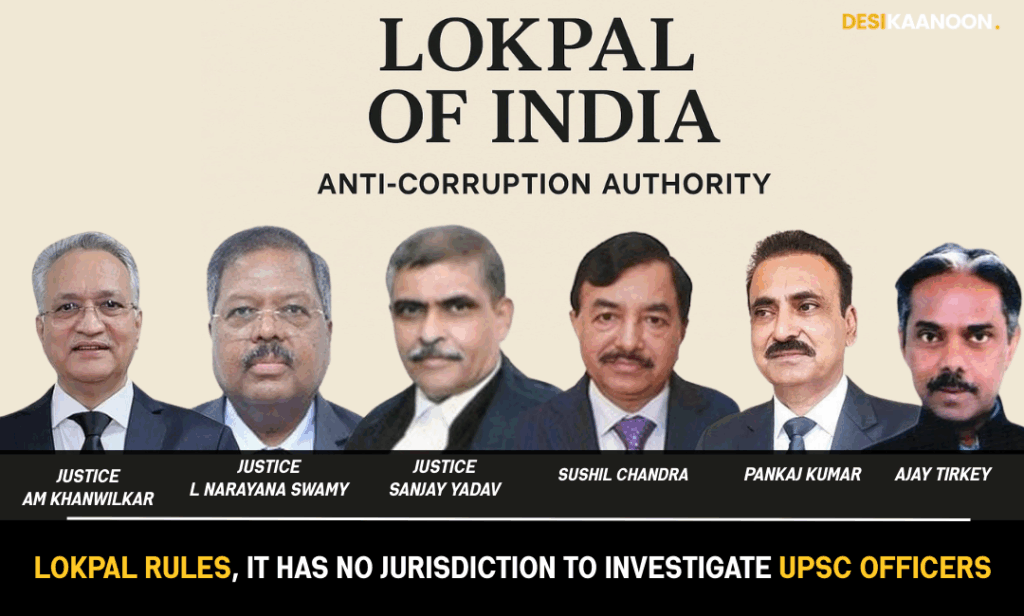Akhya Pandey
On 14th September 2025 the Lokpal of India ruled that it cannot investigate complaints against officers of the Union Public Service Commission (UPSC), holding that the Commission’s constitutional status places its officials beyond the reach of the Lokpal Act.
The complaint before the anti-corruption body was filed against the Secretary and two Additional Secretaries of the UPSC. The complainant argued that these officers are Group A Central Government officials, which brings them within the definition of “public servants” under the Prevention of Corruption Act, 1988. On that basis, it was urged that they fall squarely within Section 14 of the Lokpal and Lokayuktas Act, 2013, which empowers the Lokpal to look into allegations against public servants serving in connection with the affairs of the Union.
A Bench led by Lokpal Chairperson Justice A. M. Khanwilkar, and comprising judicial members Justice L. Narayana Swamy and Justice Sanjay Yadav, along with members Sushil Chandra, Pankaj Kumar and Ajay Tirkey, disagreed with this view. After examining the provisions, the Bench concluded that officers of a constitutionally established body like the UPSC cannot be equated with other Government employees who fall under the Lokpal’s jurisdiction. Article 315 of the Constitution creates the UPSC, and its officer’s function under a constitutional mandate rather than under a statute enacted by Parliament. The Lokpal stressed that this distinction is decisive, as its powers cannot be stretched by implication to cover officers of constitutional commissions.
On that reasoning, the complaint was dismissed. The Lokpal made it clear that if Parliament intends to include officers of constitutional bodies like the UPSC within the Lokpal’s investigative reach, it will have to be done by an express amendment. Until then, the jurisdictional bar remains.
The order is significant because it draws a boundary around the powers of the Lokpal, which was set up in 2013 with the aim of being an overarching body to probe corruption at the highest levels. The ruling means that complaints against UPSC officers must be pursued through other routes, such as judicial review before the High Courts or the Supreme Court, or internal mechanisms of accountability.
By underlining the limits of its own jurisdiction, the Lokpal has highlighted a gap in the present anti-corruption framework — one that Parliament may need to revisit if it wants constitutional bodies like the UPSC to come within the fold of external oversight.
Instagram: Click Here.
LinkedIn: Click Here.
For Collaboration and Business: Click Here.

